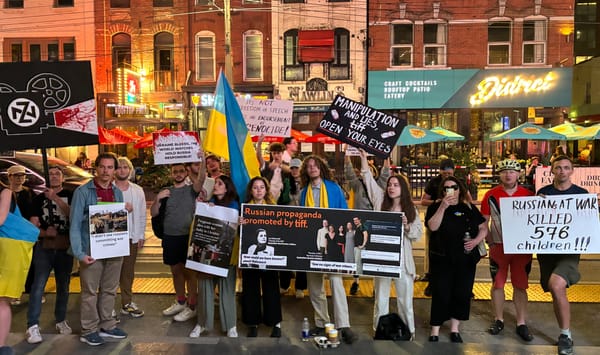Since day one of social distancing, the reopening of the economy has been front of mind for those who found the restrictions excessive, unnecessary or just annoying. Hardly a ‘TAKEOUT ONLY’ sign had been posted, nor an online store page designed, before the pleading began: the COVID-19 fear was overblown, and focusing on health was an economy-killing mistake.
The cure, we’re told, must not be worse than the disease; virtually all conservative politics now genuflects to this idea in some way. In the media, the open-ness of the economy has gradually replaced case counts and deaths as the metric-de-jour for assessing progress.
In this version of economic recovery, which enjoys the supportive cheerleading of pro-business government policy, the comeback stands to make our lives more commercial, franchised and commodified, steeping us further in a familiar corporate monoculture and dressing it all up in franchise chains and developer chic architecture.
Yet this is increasingly out of touch with a population that has mostly settled into a manageable economic routine. After three months in our homes, the pressure to consume in a certain way feels less necessary. While general pandemic experiences have differed depending on the country and region, the effect COVID-19 has had on consumer culture has been one of few trends felt on a supranational scale.
With this in mind, we should commit to a version of economic recovery that looks like how we’ve been living and buying during quarantine — slower and more considered and ethical. Instead of rushing ourselves back into the fluorescent, corporate dynamic we left behind, we should build something closer to home.
An Alternate Economy
Decades of mostly undiluted consumerism helped create the conditions in which many working and middle class people entered the pandemic: leveraged to the gills on cheap credit, living hand-to-mouth with virtually no savings and growing increasingly fatigued with the constant spending that, in the absence of much else to hold it together, best defines the middle class experience.
Social distancing has forced people into a sort of consumer audit, as those with lost income were forced to tighten the budget and those whose paycheques were still flowing suddenly couldn’t spend them as easily. Stores closed. Supply chains were disrupted as manufacturers and transport companies pivoted to protective medical equipment. Suddenly buying local felt like an urgent, noble act. Spending underwent a silent revolution, with one study finding that 42 per cent of people feel their shopping habits have been permanently changed.
Much of the economy has adapted to the pandemic, shifting the focus from steady profits and growth to building sustainable systems. Many adjustments were first made out of necessity, and yet they’ve felt like they have the capacity to turn down the volume on the constant commercial ringing in everyone’s ears.
Moreover, many of these changes have started growing into legitimate and sustainable alternatives to our more grotesque capitalist creations. They may not be anti-capitalist enterprises, but they are demonstrating a fairer economy is within reach.
The Threat Of Return
These are fragile changes, however, especially as the country is on the precipice of reimposing the exact status quo that the fellas down at the nation’s chambers of commerce have been lying awake dreaming about for the past three months.
The playbook for crisis recoveries is for governments to pump the idea of post-crisis shopping. Emerging from the Second World War, Canadians were encouraged to ‘buy, buy, buy,’ to get out there and interact with all the pleasures the consumer marketplace had to offer.
Although by the end of 1948 the average Canadian was running an annual deficit, the message from the country’s leadership implied that one way to be a good citizen was to buy and consume stuff at a faster and ever more enthusiastic rate. When the deputy governor of the Bank of Canada Donald Gordon remarked in 1948 that Canadians “drank one third more milk, ate two thirds more pork, rang up two thirds more movie admissions […] used twice as much gasoline, chewed twice as much gum, bought twice as many refrigerators and ate three times as much ice cream” as a decade earlier, he was bragging.
Since then, calls to curb consumption have rarely been expressed in explicit terms. It has become an unimaginable fantasy for a politician or party, even those on the left, to point to rampant consumerism itself as a problem, rather than a fact of life. Even in the first week of the shutdown, the NDP was calling for credit to be made even cheaper through gentle restrictions on credit card companies — well-worn turf for the party.
Virtually all political vertices — from resource extraction policies, to the conservative obsession with interprovincial trade, all the way on down to arcane debates about dairy quotas — operate on the logic that what is good for the consumer is good for Canada.
A New Way Forward
Yet despite these challenges, and considering the changes we’ve already made, a return to normal isn’t inevitable. We should look across the pond to radical anti-consumerist factions hoping to guide the European recovery onto a more sustainable trajectory for guidance. They’ve voiced a simple argument — that any serious challenge to capitalism necessarily includes changes to personal consumption patterns — that has rarely gained traction in North America where, broadly speaking, ‘Green New Deal’-style ideas promising economic growth decoupled from environmental consequences have enjoyed greater purchase among the left.
A manifesto published by the Barcelona-based organization Anomalous Perspectives called on the local government “to give the city back to its people, reorganize transit and mobility, renaturalize and decommodify the city, and promote degrowth.” One key element was explicitly anti-consumerist, calling to “encourage economic degrowth through the drastic reduction of consumption, [and] to encourage the social and local economy, the cooperative economy, the small shops, etc.”
In the Netherlands, a group of academics have called for the “reduction of consumption and travel, with a drastic shift from luxury and wasteful consumption and travel to basic, necessary, sustainable and satisfying consumption and travel” to be the explicit aims of a post-COVID economic recovery.
These calls should be instructive here in Canada, where conspicuous consumption has evolved into a lifelong practice. While we’re still working toward structural political change, here is a moment to view consumerism as capitalism’s keystone, and to explicitly challenge the practice.
A push led by public officials to get Canadians out there spending to drive the economic recovery is coming. Late last month, for example, Ontario Premier Doug Ford tweeted, “Small businesses are living proof that Ontario is a place to grow and achieve big dreams. Shop local, shop safe and shop with confidence in Ontario, by Ontario.”
These messages promote consumerism as a blunt instrument, without distinction between consumption that is sustainable and fair or thoughtless. They should be resisted.
If we’re all going to be forced into a viral economy well before a vaccine is available, and without adequate protection against the pandemic, it should be one we choose — one that’s safer, keeps money in the community and offers a modicum of respite to consumerism’s tired, drawn-down subjects.






